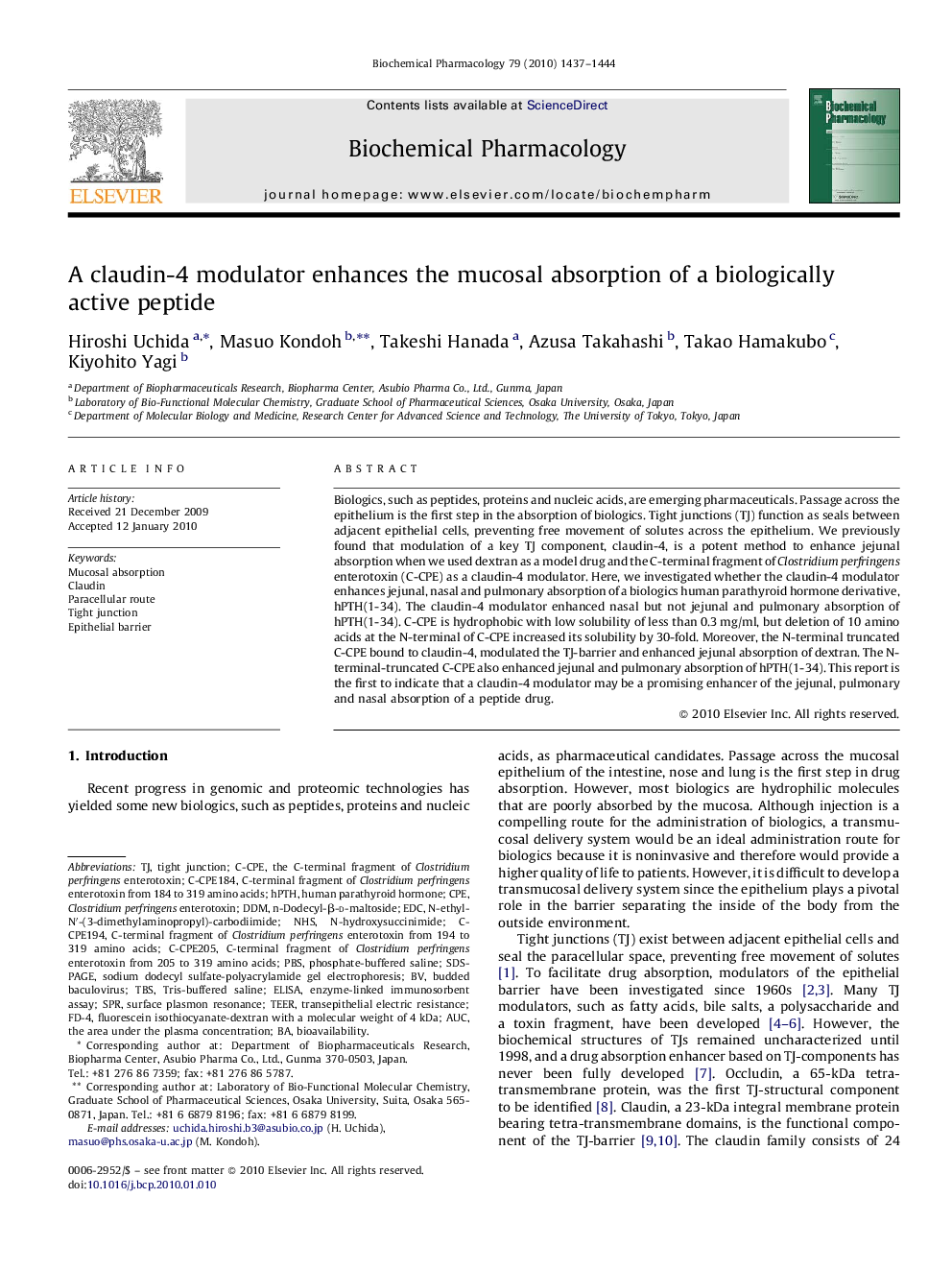| Article ID | Journal | Published Year | Pages | File Type |
|---|---|---|---|---|
| 2513649 | Biochemical Pharmacology | 2010 | 8 Pages |
Biologics, such as peptides, proteins and nucleic acids, are emerging pharmaceuticals. Passage across the epithelium is the first step in the absorption of biologics. Tight junctions (TJ) function as seals between adjacent epithelial cells, preventing free movement of solutes across the epithelium. We previously found that modulation of a key TJ component, claudin-4, is a potent method to enhance jejunal absorption when we used dextran as a model drug and the C-terminal fragment of Clostridium perfringens enterotoxin (C-CPE) as a claudin-4 modulator. Here, we investigated whether the claudin-4 modulator enhances jejunal, nasal and pulmonary absorption of a biologics human parathyroid hormone derivative, hPTH(1-34). The claudin-4 modulator enhanced nasal but not jejunal and pulmonary absorption of hPTH(1-34). C-CPE is hydrophobic with low solubility of less than 0.3 mg/ml, but deletion of 10 amino acids at the N-terminal of C-CPE increased its solubility by 30-fold. Moreover, the N-terminal truncated C-CPE bound to claudin-4, modulated the TJ-barrier and enhanced jejunal absorption of dextran. The N-terminal-truncated C-CPE also enhanced jejunal and pulmonary absorption of hPTH(1-34). This report is the first to indicate that a claudin-4 modulator may be a promising enhancer of the jejunal, pulmonary and nasal absorption of a peptide drug.
Graphical abstractFigure optionsDownload full-size imageDownload as PowerPoint slide
